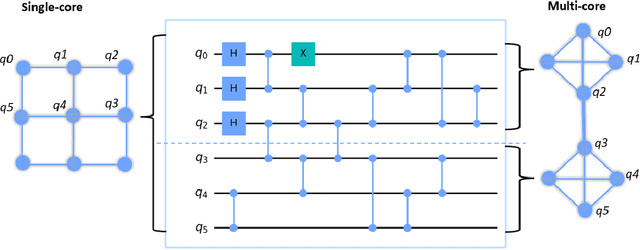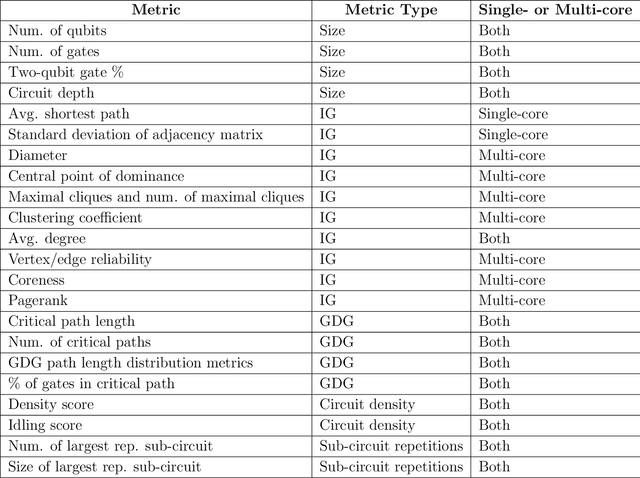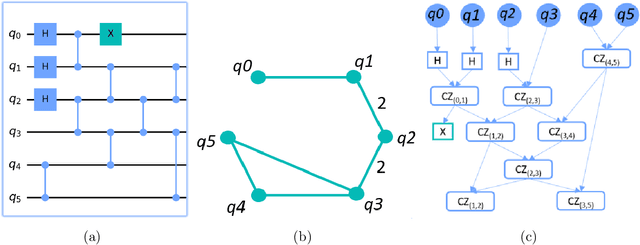Medina Bandic
Profiling quantum circuits for their efficient execution on single- and multi-core architectures
Jul 17, 2024



Abstract:Application-specific quantum computers offer the most efficient means to tackle problems intractable by classical computers. Realizing these architectures necessitates a deep understanding of quantum circuit properties and their relationship to execution outcomes on quantum devices. Our study aims to perform for the first time a rigorous examination of quantum circuits by introducing graph theory-based metrics extracted from their qubit interaction graph and gate dependency graph alongside conventional parameters describing the circuit itself. This methodology facilitates a comprehensive analysis and clustering of quantum circuits. Furthermore, it uncovers a connection between parameters rooted in both qubit interaction and gate dependency graphs, and the performance metrics for quantum circuit mapping, across a range of established quantum device and mapping configurations. Among the various device configurations, we particularly emphasize modular (i.e., multi-core) quantum computing architectures due to their high potential as a viable solution for quantum device scalability. This thorough analysis will help us to: i) identify key attributes of quantum circuits that affect the quantum circuit mapping performance metrics; ii) predict the performance on a specific chip for similar circuit structures; iii) determine preferable combinations of mapping techniques and hardware setups for specific circuits; and iv) define representative benchmark sets by clustering similarly structured circuits.
KetGPT - Dataset Augmentation of Quantum Circuits using Transformers
Feb 23, 2024Abstract:Quantum algorithms, represented as quantum circuits, can be used as benchmarks for assessing the performance of quantum systems. Existing datasets, widely utilized in the field, suffer from limitations in size and versatility, leading researchers to employ randomly generated circuits. Random circuits are, however, not representative benchmarks as they lack the inherent properties of real quantum algorithms for which the quantum systems are manufactured. This shortage of `useful' quantum benchmarks poses a challenge to advancing the development and comparison of quantum compilers and hardware. This research aims to enhance the existing quantum circuit datasets by generating what we refer to as `realistic-looking' circuits by employing the Transformer machine learning architecture. For this purpose, we introduce KetGPT, a tool that generates synthetic circuits in OpenQASM language, whose structure is based on quantum circuits derived from existing quantum algorithms and follows the typical patterns of human-written algorithm-based code (e.g., order of gates and qubits). Our three-fold verification process, involving manual inspection and Qiskit framework execution, transformer-based classification, and structural analysis, demonstrates the efficacy of KetGPT in producing large amounts of additional circuits that closely align with algorithm-based structures. Beyond benchmarking, we envision KetGPT contributing substantially to AI-driven quantum compilers and systems.
 Add to Chrome
Add to Chrome Add to Firefox
Add to Firefox Add to Edge
Add to Edge